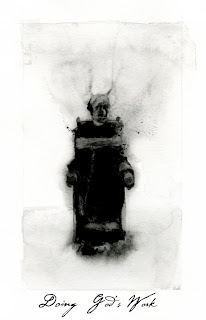Thanks to Judge Kevin Fine in Houston for ruling that the Texas death penalty is unconstitutional. In 2004, New York courts ruled that the New York death penalty law was unconstitutional and the New York legislature did not pass a new death penalty law, so in New York the death penalty was abolished by such a ruling.
A Houston judge this afternoon declared the death penalty unconstitutional in a pretrial hearing in response to a motion from defense lawyers.
State District Judge Kevin Fine’s ruling is unlikely to withstand appellate review.
Fine granted a motion from defense attorney Bob Loper to declare Texas’ death penalty unconstitutional.
Fine was hearing motions Thursday from accused killer John Green’s attorneys, and unpredictably granted a motion asking the court to declare the death penalty unconstitutional. Green is suspected of shooting a woman in 2008 and could be executed if found guilty.
“In every capital murder case,” Green’s attorney, Casey Kiernan, tells Hair Balls, “lawyers always ask the court to rule that the death penalty is unconstitutional. And this time the judge did it. I don’t know that this has ever happened before in Harris County. It may be the bravest decision I’ve ever seen a judge make in more than 30 years as a defense lawyer.”
and
Kiernan says the next move belongs to the prosecution. DA Pat Lykos will have to decide whether to appeal Fine’s ruling. Phone calls to the DA’s office have so far gone unreturned. Kiernan says he plans on meeting with prosecutors tomorrow to plot out the next steps.
Though it is doubtful that Fine’s ruling would pass muster upon appeal, Kiernan is hopeful.
“What the judge is saying is that the system is broken in the state of Texas,” says Kiernan. “And he really made a point of saying that more than 200 people have been exonerated. We won a big battle here today.”
Updated: DA Pat Lykos has issued her statement.
Words are inadequate to describe the Office’s disappointment and dismay with this ruling; sadly it will delay justice for the victims and their families. The Texas Court of Criminal Appeals and other appellate courts have consistently rejected the same issues raised in the Green case.
The decision of whether to seek the death penalty is a solemn and profound responsibility. After a deliberative and thoughtful process this Office reached the conclusion to prosecute Mr. Green for the horrific capital murder he committed and to ask the jury to assess the death penalty. We respectfully, but vigorously disagree with the trial judge’s ruling, as it has no basis in law or in fact. We will pursue all remedies.








 Raised in Puerto Rico, Juan Melendez was working in Polk County as a fruit picker before he was sentenced to death in 1984 for the 1983 killing of an Auburndale beauty salon owner named Delbert Baker. A police informant implicated Melendez and another man. The second man cut a deal with prosecutors and testified against Melendez, but 12 years later, he recanted, saying he was coerced.
Raised in Puerto Rico, Juan Melendez was working in Polk County as a fruit picker before he was sentenced to death in 1984 for the 1983 killing of an Auburndale beauty salon owner named Delbert Baker. A police informant implicated Melendez and another man. The second man cut a deal with prosecutors and testified against Melendez, but 12 years later, he recanted, saying he was coerced.


